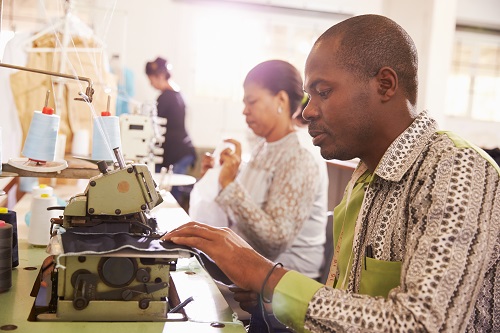South Africa has long struggled with inequality, unemployment and instability in labour relations. Wages are very low, and many of the country’s employees aren’t covered by formal wage institutions, or struggle to understand their rights. Coupled with slow economic growth, these conditions have fueled rising instability in labour relations, including lengthy and violent strikes.

From idea to action: overcoming hurdles
In 2014, the South African President called on the National Economic Development and Labour Council (Nedlac) to address the rising inequality and instability in labour markets. All four Nedlac constituencies – organized business, organized labour, the government and the community – adopted a declaration that year to promote employment and strengthen social dialogue. They established a committee and two Task Teams to carry out the work.
The Labour Relations Task Team focused on labour market instability, including strikes and the role of the state in promoting collective bargaining. A Wage Inequality Task Team addressed wage inequality and engagement on a national minimum wage.
The Labour Relations Task Team was able to wrap up its work after roughly two and a half years. In contrast, the Wage Inequality Task Team deadlocked in almost the same time. To overcome this stalemate an expert advisory panel was set up in 2016, which produced a crucial report that helped break the deadlock.
Ground-breaking improvements for South African workers
In February 2017, the Nedlac constituents agreed to a policy comprising of a national minimum wage and a Code of Practice on collective bargaining, industrial action and picketing. In May 2017, the National Assembly introduced a national minimum wage and amended the law to strengthen and promote collective bargaining.
As a result, all South African workers will be covered by a national minimum wage, compared to just 30% prior to the reform. 6.4 million workers – or 47% of the workforce – will see their wages increase thanks to the reform, and half the nation will benefit directly from it. This will mean more food on the table for their families, and spur local economic growth as workers will have more money for food, transport and electricity. The fact that this could be achieved shows the value of social dialogue through Nedlac between labour, business, government and civil society.
Involved Global Deal Partners
